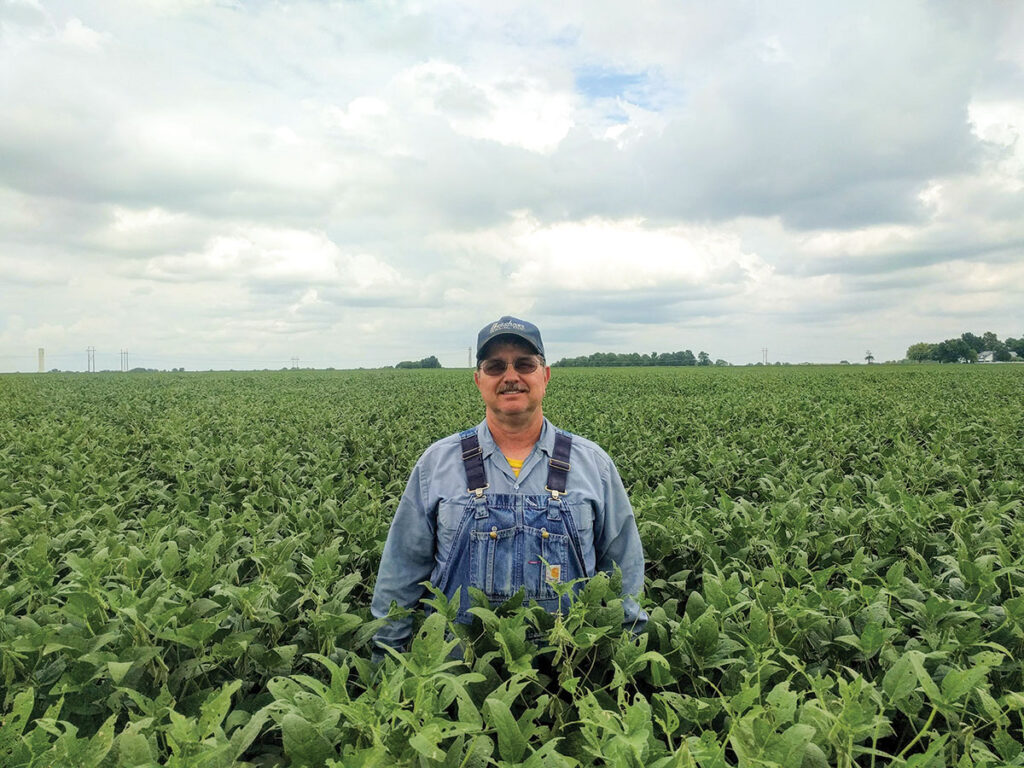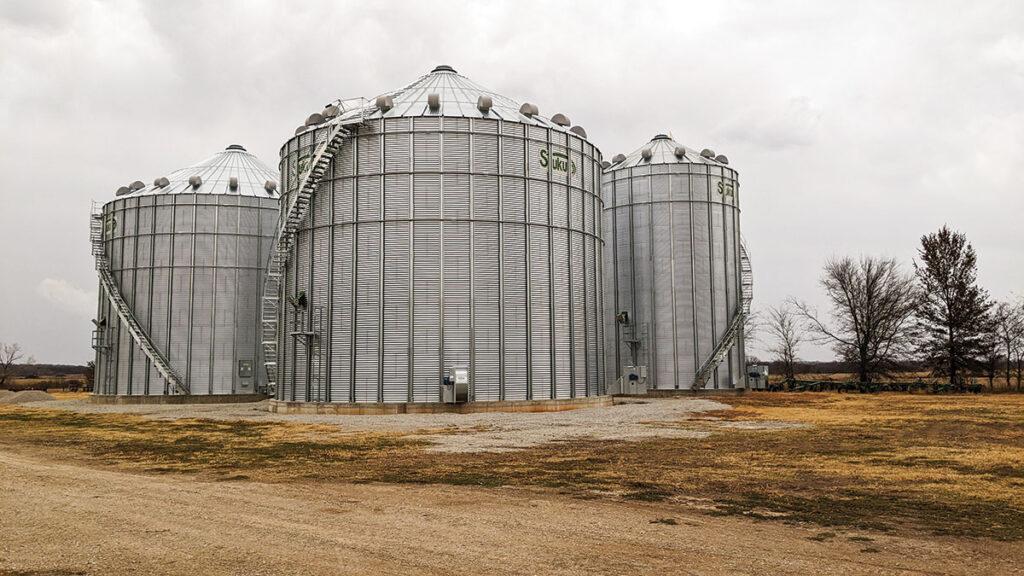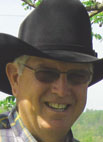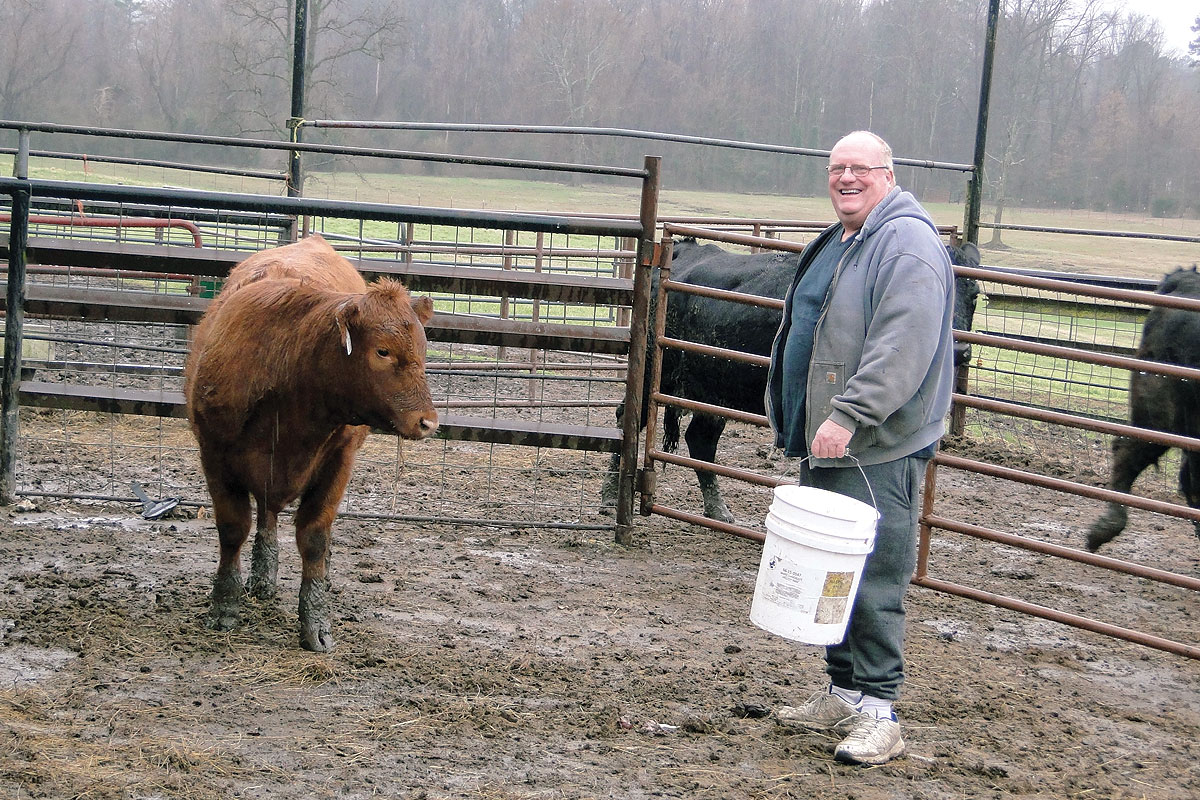
Brent Rendel mixes his engineering background with practices at Rendel Farms
MIAMI, OKLA. – With a background in engineering Brent Rendel has turned his love of scientific methods into saving money and Oklahoma soil.
Brent and Jera Rendel are third generation farmers. They along with Brent’s mother Sue and nephew Zack operate Rendel Farms in Ottawa County north of Miami. The 54,000-acre farm grows wheat, corn, grain sorghum and soybeans.
The Rendel family can trace their family’s farming roots before statehood, when Brent’s great-great-grandfather moved to Oklahoma in the late 1800s from the Ohio River Valley. Brent can also trace his engineering heritage back to his father, Mark, who also had a mechanical engineering degree from Oklahoma State University.
After graduation in 1986 with a mechanical engineering degree from Oklahoma State, Brent served his country for the next seven years by working as a Navy submarine officer and nuclear engineer. In 1993, Brent left the Navy and returned to Oklahoma to run a family steel fabrication business.
In 1986, he helped dig the family roots in Ottawa County a bit deeper when he joined the family’s farming business.
The technical background of engineering has always piqued Brent’s interest. So, he really fell in love with farming when he could marry it with engineering.
Winter canola used as a rotation crop was one of fruits of that marriage of farming and engineering.
“Rendel Farms was the first farm in northeast Oklahoma,” Brent said referring to using the crop.
Brent got his hands dirty doing on-farm research when Oklahoma State was expanding their in-field use of the GreenSeeker technology they developed.
The GreenSeeker technology provides an opportunity for the farmer to apply only the needed nitrogen fertilizer on their farms for the growing season, according to the Oklahoma State University Extension website. Using the GreenSeeker sensor, a handheld device, allows the farmer to instantly take a reading of the crop’s health, the website states.
“The results were surprising,” Brent said.

The GreenSeeker sensor said the soil did not need any nitrogen at all on a wheat field, he said.
Always cautious and analytical, Brent approached the sensor’s readings like anything else.
He measured the results, and he discovered the field without the added nitrogen yielded as well as the other fields of wheat that year. The savings from not applying that nitrogen resulted in a significant increase in profit.
Brent evaluated GreenSeeker the next year across more fields and all yielded very favorable results.
One avenue of farming Brent’s ancestors did not utilize was social media. Brent’s Twitter handle @OkiefarmerBrent has more than 838 followers. Brent follows farmers across the county and retweets everything from his favorite football team – Kansas City Chiefs – to his love of dogs – to selling farm combines – to passing out farming research knowledge.
“I think the internet has made the world a smaller community but yet enlarged a farmer’s resources family,” Rendel said. “Farmers across the county can connect with each other and help one another.
Brent also uses his combination of farming-science background at Oklahoma State University Extension where he conducts research on improving farming methods.
Brent is one of the recipients of the 2019 PrecisionAg Awards of Excellence.
Brent currently serves as Oklahoma Oilseed Commission, secretary/treasurer; the Oklahoma Soybean Board, chairman and the United Soybean Board, director. The commissions administer the state canola and sunflower, state soybean and national soybean checkoff program.
Brent also serves as a farmer/cooperator with several on-farm research programs, including the Kansas Ag Research and Technology Association (KARTA), the Rainfed Agriculture Initiative Network Farmer-to-Farmer program (RAIN F2F) and Data Intensive Farm Management Project (DIFM).







